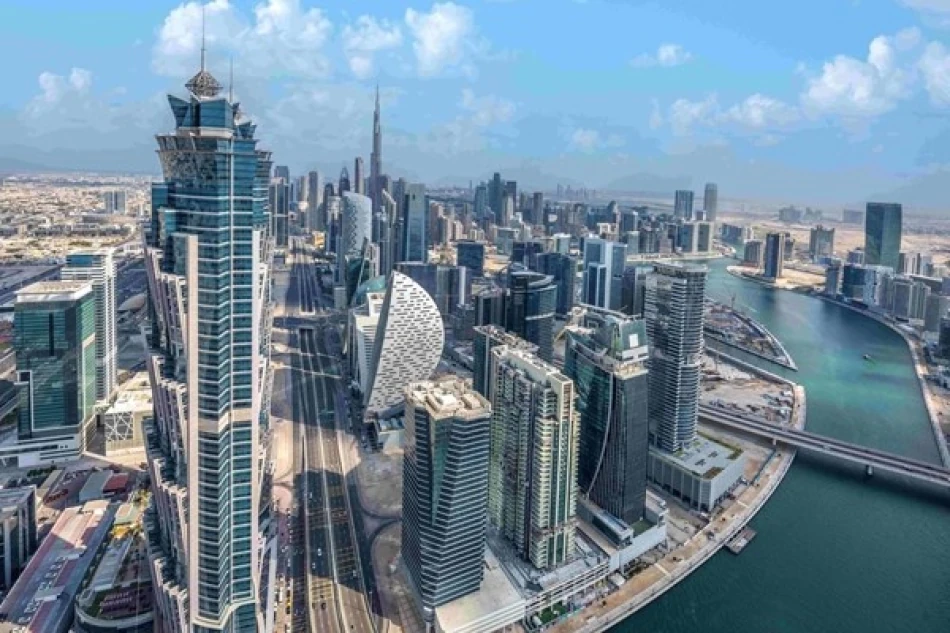
Dubai Lands Records Over 4,000 Real Estate Activities in First Half
Dubai's Real Estate Sector Surges with Over 4,000 New Business Registrations in First Half of 2024
Dubai's real estate market is experiencing unprecedented professional growth, with 4,049 new real estate activities registered in the first six months of 2024 through the Dubai Land Department's digital licensing platform. This surge reflects the emirate's strategic push to become a global real estate hub while diversifying its economic base beyond oil and tourism.
Digital Infrastructure Drives Market Expansion
The growth is anchored by Dubai's advanced regulatory framework, particularly the "Tarakheesi" system operated by the Dubai Land Department. This digital platform serves as the official gateway for registering and activating essential real estate activities, streamlining what was once a bureaucratic maze into a seamless online experience.
The system covers a comprehensive range of real estate services, from basic brokerage to complex development projects. Property sales brokerage dominated the registrations with 2,301 new activities, followed by rental brokerage services at 1,279 registrations. This distribution suggests a robust market serving both investors seeking capital appreciation and the growing expatriate population requiring rental accommodations.
Diversification Beyond Traditional Brokerage
The registration data reveals a maturing market ecosystem. Beyond the dominant brokerage sectors, 273 businesses registered for direct property and land trading, while specialized services gained traction: property management supervision (43 activities), mortgage brokerage (43), and real estate consulting (40).
Notably, 11 new real estate development licenses were issued, indicating continued confidence in Dubai's construction pipeline despite global economic uncertainties. Property valuation services registered 14 new activities, reflecting increased due diligence in transactions as the market matures.
Strategic Positioning Against Global Competition
Dubai's approach mirrors successful real estate hubs like Singapore and London, where streamlined regulatory frameworks attract international capital. However, Dubai's advantage lies in its tax-free environment and strategic location bridging European, Asian, and African markets.
The emirate's real estate strategy directly competes with other Gulf Cooperation Council members, particularly Saudi Arabia's NEOM project and Qatar's National Vision 2030. Dubai's focus on regulatory efficiency and digital transformation gives it a competitive edge in attracting real estate professionals and investors.
Market Implications for Investors and Developers
The surge in professional registrations signals several market dynamics. First, the high number of brokerage registrations suggests increased transaction volumes are anticipated. Second, the growth in property management and consulting services indicates a shift toward more sophisticated real estate investment strategies.
For international investors, this professional infrastructure expansion reduces transaction costs and increases market transparency. The digital licensing system also enables faster market entry for foreign real estate firms looking to establish Middle Eastern operations.
Alignment with Dubai's 2033 Real Estate Strategy
These developments support Dubai's Real Estate Strategy 2033, which aims to position the emirate as a leading global real estate destination. The strategy emphasizes sustainable growth, economic diversification, and innovation in real estate services.
The current registration surge suggests the strategy is gaining momentum. By creating a flexible business environment that adapts to demographic and economic growth, Dubai is building the professional infrastructure necessary to handle increased real estate activity.
The emirate's population growth, driven by business-friendly policies and lifestyle attractions, creates sustained demand for both residential and commercial properties. The expansion of professional services ensures this demand can be efficiently met while maintaining market stability and transparency.
Most Viewed News

 Layla Al Mansoori
Layla Al Mansoori






